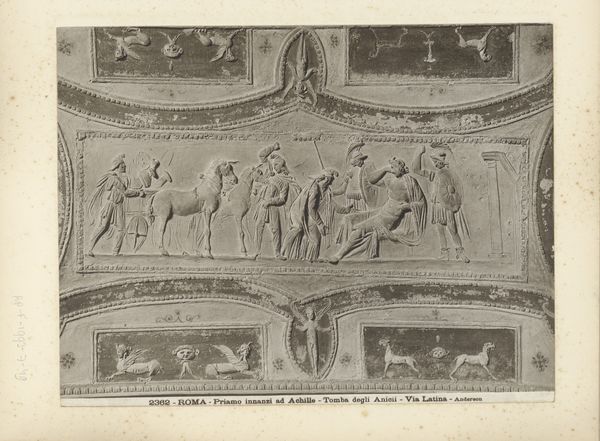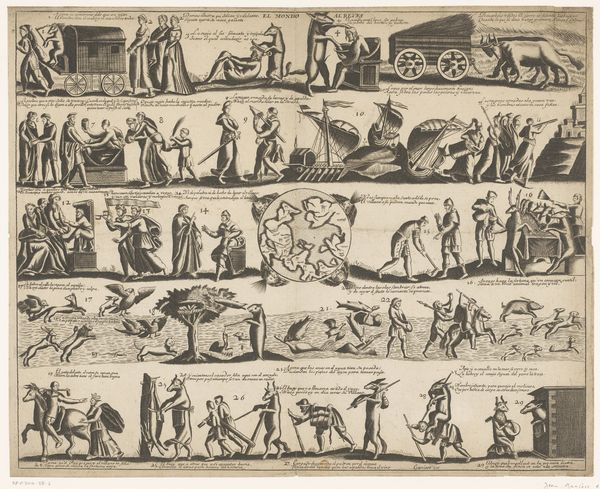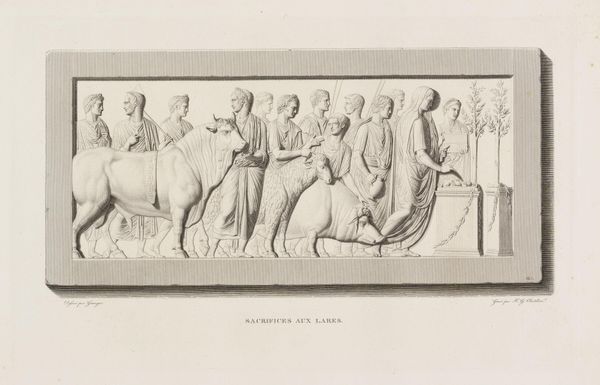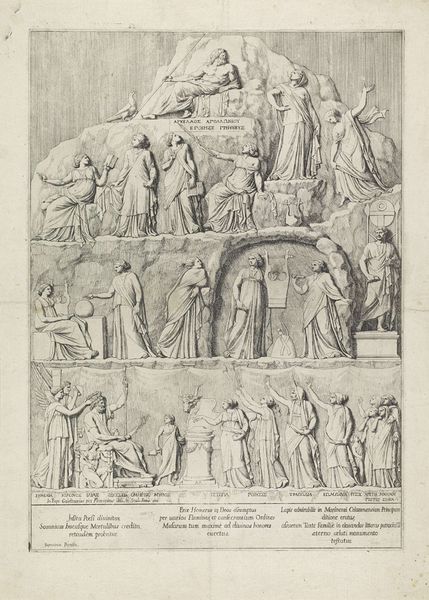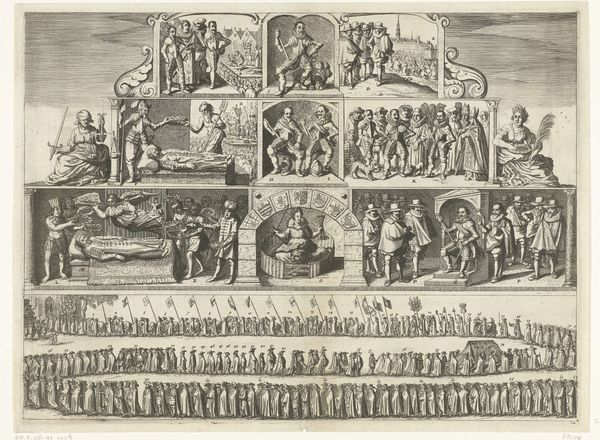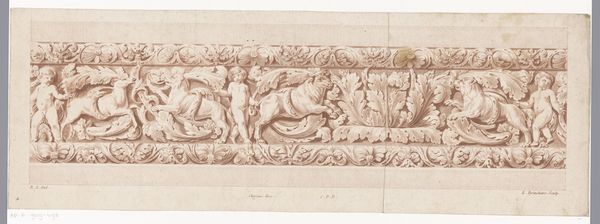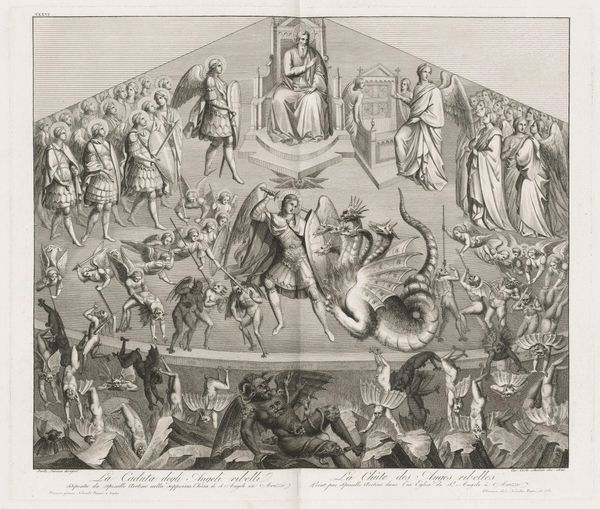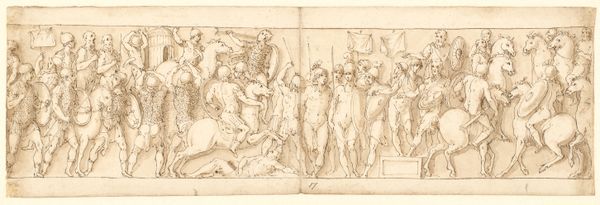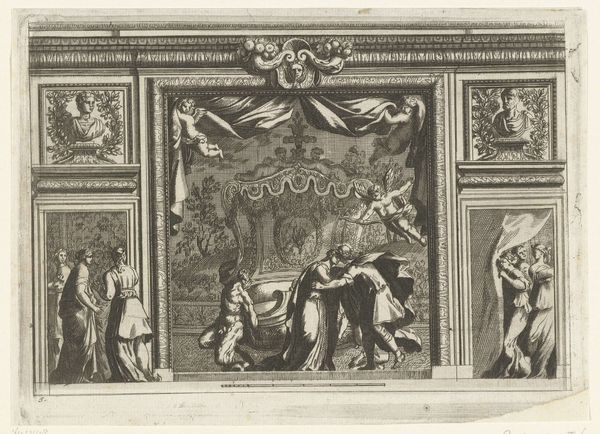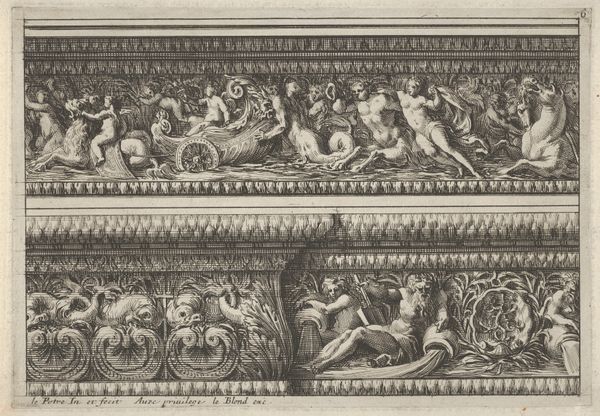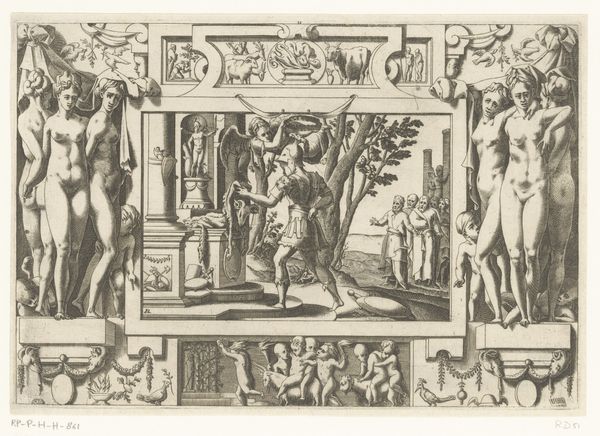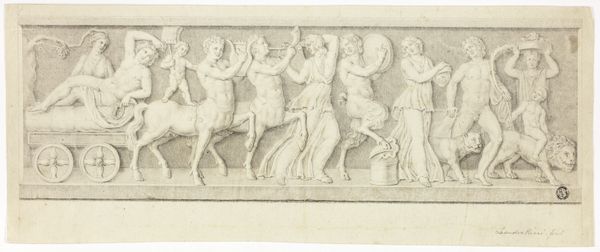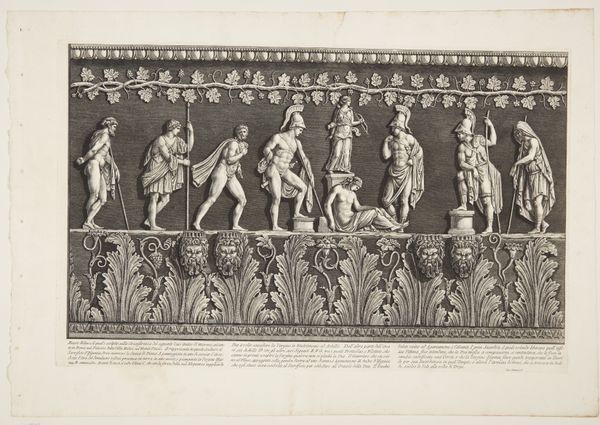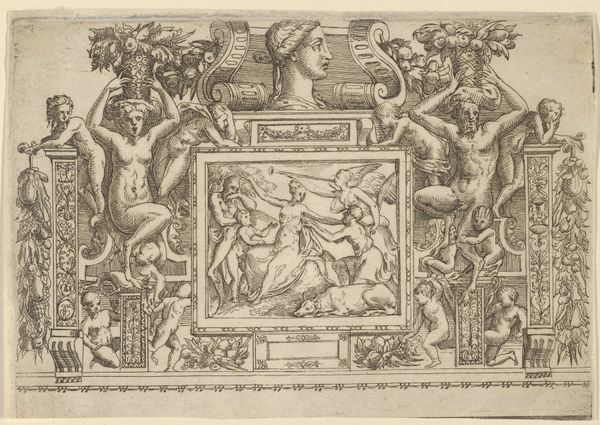
Sarcofaag van keizer Severus Alexander en zijn moeder Julia Avita Mamaea c. 1756 - 1757
0:00
0:00
giovannibattistapiranesi
Rijksmuseum
print, relief, engraving
#
portrait
# print
#
greek-and-roman-art
#
relief
#
old engraving style
#
classical-realism
#
figuration
#
ancient-mediterranean
#
line
#
history-painting
#
engraving
Dimensions: height 391 mm, width 515 mm
Copyright: Rijks Museum: Open Domain
Giovanni Battista Piranesi made this etching of the Sarcophagus of Emperor Severus Alexander and his mother Julia Avita Mamaea sometime in the 18th century. Piranesi was working during the Enlightenment, at a time when many artists were interested in documenting and preserving classical art and architecture. This print reflects more than just the physical appearance of the sarcophagus; it encapsulates the social and political values associated with antiquity. This piece reveals the intertwined roles of motherhood, power, and imperial succession in ancient Rome. Julia Avita Mamaea was a powerful woman who greatly influenced her son's reign. Piranesi's decision to depict this particular sarcophagus speaks to a fascination with dynastic power and the influence of women within patriarchal structures. What does it mean to inscribe a story in stone, and then to reproduce that story again through printmaking? It creates layers of meaning and interpretation. The figures, frozen in time, evoke a sense of stoicism, inviting us to consider the weight of history and the burdens of leadership.
Comments
No comments
Be the first to comment and join the conversation on the ultimate creative platform.
